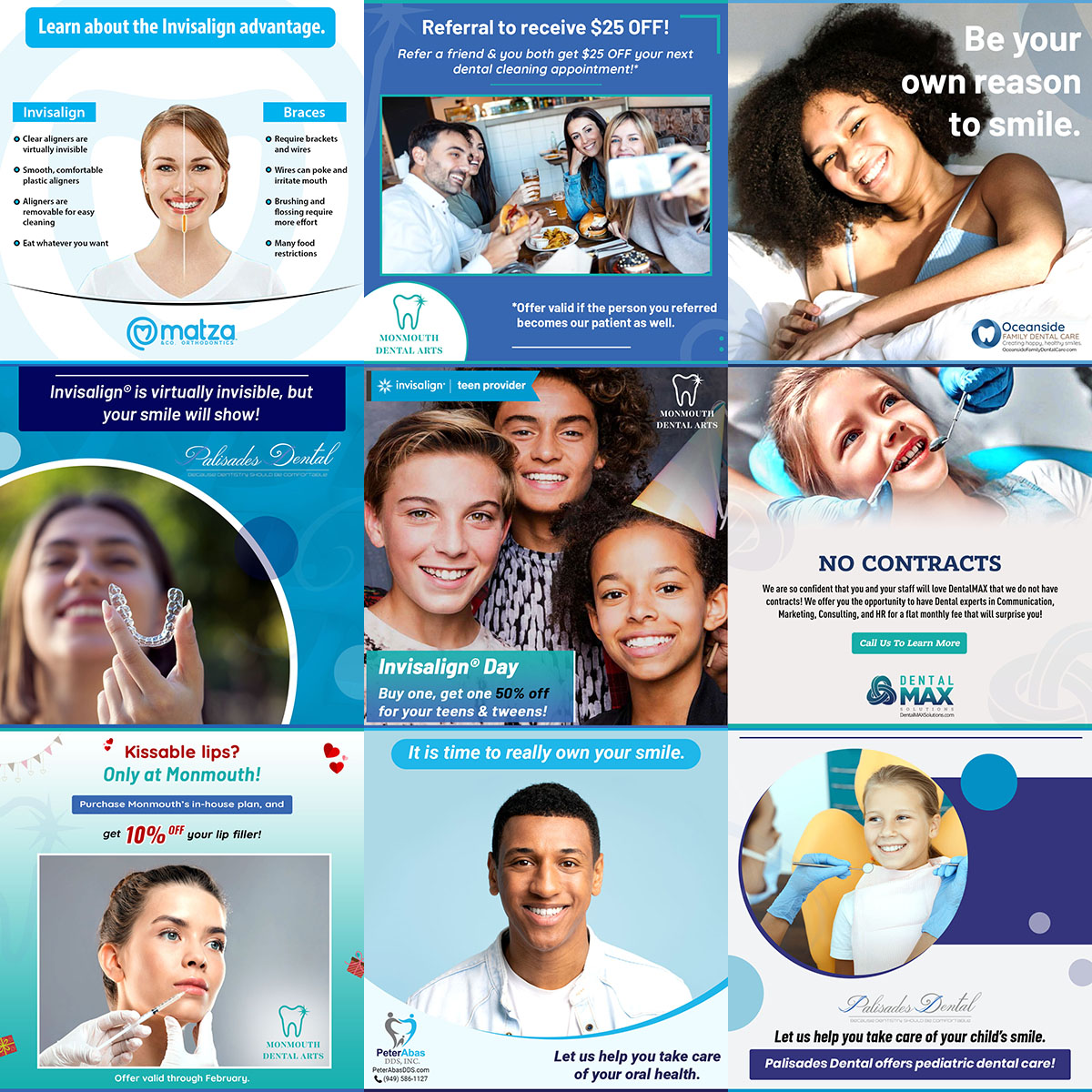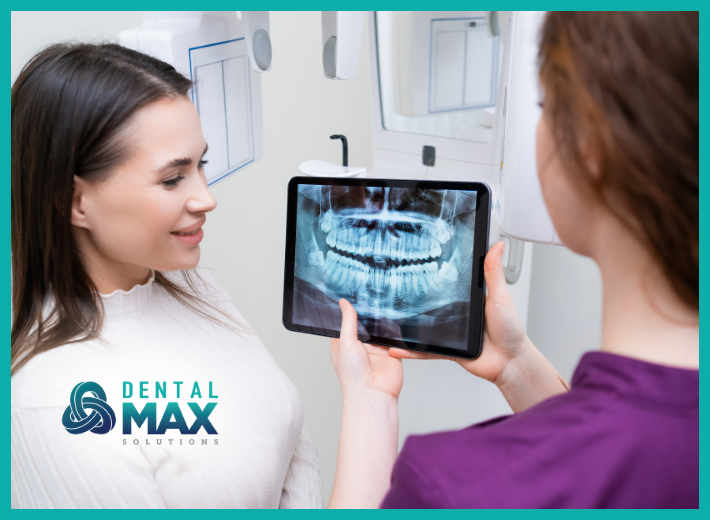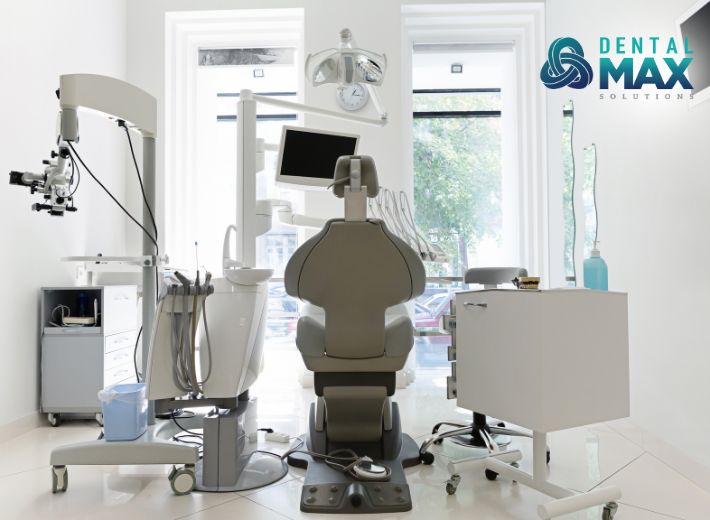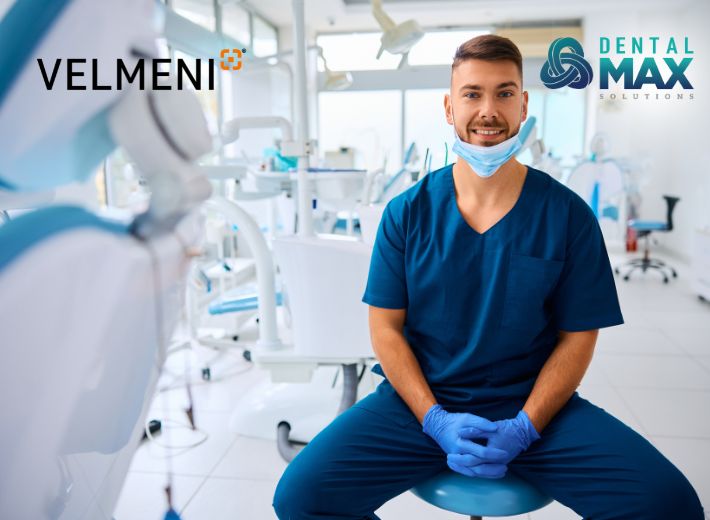Blog
The Future of Dental Care: Trends and Opportunities
The field of dentistry is undergoing a rapid transformation, driven by technological advancements, changing patient expectations, and evolving healthcare trends. The future of dental practice holds exciting possibilities. Here you can check the key trends shaping the dental landscape and discuss the opportunities that these advancements present for dental professionals and patients alike. Want to talk with an experienced consultant to see how you can improve the efficiency of your practice — whether it's marketing, systems, or team building? Just let us know!
The landscape of dental practices is undergoing a significant transformation, marked by the consolidation of private offices and the rise of corporate dental entities. This trend, often referred to as corporatization, has profound implications for dental workers seeking employment opportunities in an industry undergoing rapid change. In this article, we’ll explore some of the factors driving the corporatization of the dental industry, discuss the consolidation of private practices with a couple of dental health professionals, and then look into some of the differences between private and corporate dental practices.
The rise of corporate dental entities
Over the past decade, there has been a notable increase in the number of corporate dental entities acquiring and consolidating individual dental practices. These corporate entities, often backed by private equity firms or investors, seek to streamline practice operations and enhance profitability by increasing scale, standardizing operational protocols and centralizing management systems. However, the transition from traditional, owner-operated practices to corporate-owned entities can bring about changes in practice culture, treatment protocols and autonomy for dental health professionals, prompting concerns among some members of the dental community.
Dental hygienist discusses private vs. corporate practices
Marissa Aquino, R.D.H., B.S.D.H., has been in the dental field for more than 14 years and has practiced hygiene for nine years. Going to appointments as a child, she had always loved the dental setting and knew early on that she wanted to work in the dental field. “I’ve always felt like family at the dental office I used to go to. In 2011, they knew of my interest in dentistry and offered if I wanted to work as a dental assistant to see if I truly saw myself in the field,” Aquino said. “Fast forward to 2016, I found an office that welcomed me in as a new grad and worked with me to make the transition from student clinician to professional dental provider. Over the years I have built a great relationship with my team and have remained with them since graduating.” Aquino is quite the proponent of private dental practices, praising them for their overall autonomy and flexibility with employee work-life balance. Having been with the same practice for much of her career, she isn’t too worried about talk of consolidation, though she completely understands why some aspiring dental workers would want to go corporate rather than private. “Corporate dentistry will always attract people who are looking for work due to the benefits they provide, as compared to a smaller practice who most likely would not have the means to give an employee a competitive offer,” Aquino stated. “But while private practices might be limited in offering financial benefits, they are able to present a more autonomous work environment, which can be just as appealing to those who are looking for work.” That being said, Aquino can’t deny that she’d prefer to be a patient at a private dental office. “I feel like private dental offices care more about the overall well-being of their patients. Many of my friends who are also dental hygienists started off with corporate offices, but ended up wanting to leave or have already left to go to a private dental office. They felt that the standard of care they give to their patients is better in their private offices than their previous corporate offices.”
Aspiring dental workers should consider all options
Thomas Logsdon, D.M.D., has been practicing general dentistry since 2014. He was exposed to the dental field at an early age through his mom, a dental hygienist and educator who worked in many different practice settings and enjoyed her patients. Deciding to become a dentist after realizing he was interested in human physiology, he shadowed general dentists and dental specialists in high school and college and started his first job in the dental industry as an orthodontic laboratory technician and orthodontic chairside assistant in college. “I was drawn to the field after my experience shadowing and working with actively practicing dental professionals,” said Dr. Logsdon. “My curiosity and willingness to learn was met with warmth from the practitioners that I met, which further encouraged me to pursue my dental degree.” After completing dental school and a one-year hospital-based General Practice Residency, Dr. Logsdon’s first job was an associate position in a small private practice. “Similar to the experiences of many in the medical and healthcare fields, starting in private practice has a bit of a learning curve. Time management skills, procedure efficiency, customer service and patient education are skills that are paramount in dentistry and are a large part of starting in an existing practice as an associate dentist,” Dr. Logsdon said. “Working with a dedicated dental assistant, pausing procedures to complete hygiene examinations and working with office staff are also new elements of practice for a newly graduated dentist. Over time, these new elements become more familiar, and you become more efficient and comfortable with practice. I chose to work in this particular private practice as it was a family practice that was well established within its community with loyal, long-term patients.” When asked about the consolidation of dental practices and its effect on aspiring dental workers, Dr. Logsdon shared a practical perspective: Patients come first, and job seekers in the dental field should pursue a position with a practice that best fits their personal aspirations. “Shifts in the dental industry regarding an increasing number of corporate entities are similar to what’s taken place in the medical field. As always, dentists and individuals looking for jobs in the dental industry should consider all of their options during their job search,” Dr. Logsdon advised. “Working in the dental industry can vary widely in terms of environment. Job seekers should explore private practices with no corporate affiliation as well as practices with corporate affiliation to find the work environment, pay structure and benefit structure that best suits them. Other options for work in the dental industry might include working in public health, educational institutions and also for governmental agencies. “Change is not always bad. It is important to keep in mind that in any healthcare setting, including the dental setting, efforts should be focused on providing the best possible care to the patients seeking care.”

Private dental practices vs. corporate dental practices
For dental workers seeking new job opportunities, corporatization presents a mixed bag of pros and cons. Let’s explore some of these differences in detail.
Benefits of working for a private dental practice
There are several reasons you might consider working for a private dental practice, such as:
- Personalized patient care: Private practices often provide a more personalized patient experience, fostering stronger relationships and trust between the dental team and the individuals they serve. Corporate dental chains may prioritize productivity metrics, treatment quotas and profit-driven decision-making, which can detract from the quality of patient care.
- Clinical autonomy: Dentists and dental professionals in private practices typically have more autonomy over treatment decisions and practice protocols, allowing for greater flexibility in patient care. Those in corporate practices may have less autonomy over treatment decisions, scheduling and practice management, as decisions are often centralized and dictated by corporate policies.
- Family-like atmosphere: Private practices often cultivate a close-knit, family-like atmosphere among team members, promoting collaboration, camaraderie and a supportive work environment. Patients may perceive corporate practices as impersonal or transactional, needing a more personalized touch and individualized attention.
- Direct influence on practice growth: Employees in private practices may have a more direct impact on practice growth and success, contributing ideas, initiatives and efforts to drive patient satisfaction and practice expansion. Corporate environments may be characterized by bureaucratic processes, administrative red tape and rigid policies that can hinder innovation, creativity and adaptability among dental professionals.

Benefits of working with a corporate dental chain
While there are certainly many positive reasons to work for a private dental practice, corporate dental chains can offer a few advantages:
- Stability and resources: Corporate dental chains often offer stability, financial security and access to resources such as advanced technology, marketing support and centralized administrative services. Private practices may have limited resources and infrastructure compared to larger corporate entities, which can affect access to advanced technology, continuing education opportunities and marketing resources.
- Financial security: Corporate dental offices may offer competitive salaries, comprehensive benefits packages and performance incentives to attract and retain top talent in the industry. Private practices may face financial challenges such as fluctuating patient volumes, reimbursement rates and overhead costs, which can impact job stability and income potential for employees.
- Structured career paths: Corporate entities may provide clear career paths, professional development programs and opportunities for advancement within a structured organizational hierarchy. Career advancement opportunities may be limited in private practices, especially for dental professionals seeking specialized training, leadership roles or practice ownership.
- Standardized protocols: Corporate practices often implement standardized treatment protocols, quality assurance measures and operational efficiencies, ensuring consistency in patient care delivery across multiple locations. In private practices, employees may wear multiple hats and juggle various responsibilities, leading to potential burnout and stress from managing both clinical and administrative tasks.
Dental professionals should carefully weigh the pros and cons of each practice setting to determine the best fit for their professional aspirations and personal preferences.

Stay ahead of the curve in the evolving dental landscape. Our dental management solutions can help you adapt to changing trends and optimize your practice's success. Schedule a meeting today at 561-777-2439 to learn more or find us on Instagram!
Reference: [https://www.indeed.com/career-advice/news/changing-dental-practices-impact-dental-workers]











